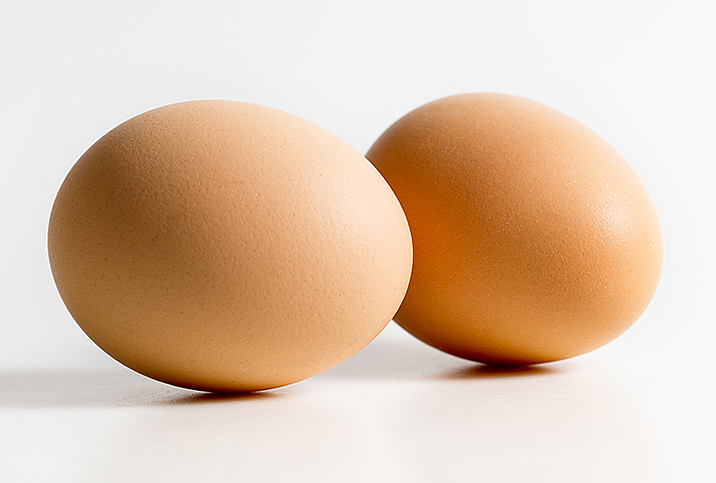What Testicle Size Can Reveal About Your Health

Similar to penises, which range in size and appearance, testicles vary in shape and girth depending on a number of factors, including genetics, temperature, illness, age and others. However, we know testicles are generally oval-shaped and typically measure about 4-by-3-by-2 centimeters.
Men with smaller- or larger-than-average testicles shouldn't automatically assume the worst. Testicles that don't conform to "average" are not always an indication of underlying health issues. Heck, even the commonly reported "ball shrinkage" due to cold water or air isn't an issue, since it's actually the testicles temporarily retracting closer to the body for warmth, which makes them appear smaller. And don't worry about one hanging lower than the other, either, because that's normal, too. However, it's important to be aware of possible testicular conditions and to reach out to your doctor if you notice any changes or sudden pain.
Conditions linked to shrunken testicles
Having smaller testicles may indicate an individual has a reduced sperm count. About 80 percent of each testicle is made up of seminiferous tubules, structures that manufacture sperm. In fact, a 2014 study published in the African Journal of Urology found smaller testicles corresponded with reduced sperm density.
Smaller testicles could also be a sign of hypogonadism, a clinical term used to describe low testosterone (low-T) levels. Decreased testosterone levels can lead to low sex drive, infertility, less muscle mass, and reduced facial, pubic and chest hair. This condition is typically treated with hormone therapy.
Another potential condition associated with smaller testicles is Klinefelter syndrome (KS), a genetic condition that occurs when a male is born with an extra X chromosome. According to the Mayo Clinic, this syndrome often goes undiagnosed until an individual has reached adulthood. Men with Klinefelter syndrome typically have smaller-than-normal testicles and experience symptoms such as lower testosterone levels, enlarged breast tissue, reduced muscle mass and more. The Mayo Clinic reports most men with this syndrome produce little or no sperm but can still have children with assisted reproductive procedures.
A potential problem of enlarged testicles
Enlarged testicles can be a sign of health conditions, as well. In some cases, enlarged testicles can be an indicator of testicular cancer, though a urologist will be more concerned with a suspicious mass than with general size. Individuals with testicular cancer often experience swelling or a feeling of heaviness in one or both testicles. If you experience these symptoms, contact your doctor right away. Testicular cancer has a high treatment success rate, but detecting it early is crucial.
Ultimately, it's important to remember testicle size varies from person to person, but it's a good idea to conduct a self-check of your testicles each month so you can alert your doctor if you detect anything out of the ordinary. If you are concerned that the size of your testicles may be a sign of an underlying health condition, discuss your concerns with your doctor.


















